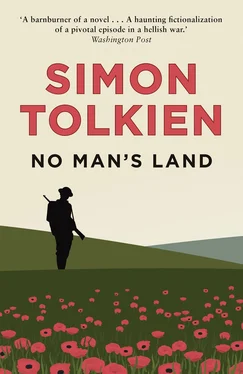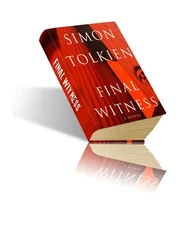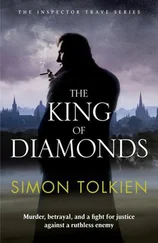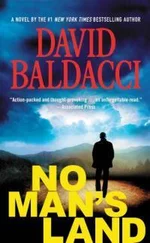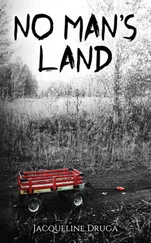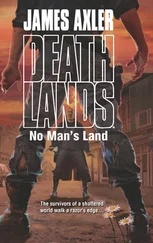‘Where is everyone?’ asked Adam, looking away. ‘There’s no one outside.’
‘They’ve gone to the Hall with Whalen Dawes. Surely you know that?’
‘No, I was in the mine with Rawdon. We were lost and we just got out.’
‘I didn’t know he was a friend of yours,’ said the parson, raising his eyebrows.
‘He’s not. Or he wasn’t,’ said Adam, stumbling over his words. ‘Has my father gone too – to the Hall?’
‘Yes. And I fear the worst, to be honest with you. Whalen’s worked the men up to a fever pitch, saying that the accident’s the owner’s fault; that he doesn’t care; that he thinks the miners are like the third-class passengers on the Titanic – not worth saving …’
‘Well, that may be true, but that doesn’t make it Sir John’s fault. What’s Whalen’s basis for saying that?’
‘He says that if they’d had reverse ventilation then they could have taken the air away from the fire, starved it of oxygen. There was a law passed last year requiring mine owners to install it but it’s expensive and so they were given two years’ grace, so I suppose you can argue it either way. What matters is that Whalen’s been waiting for something like this to happen ever since he took over from your father – he wants to start the revolution here in Scarsdale and he thinks this is his opportunity.’
‘What about my father? What did he do?’
‘He tried to talk the men out of going and I did too, but they wouldn’t listen. They’re angry and they’ve taken Edgar’s death very hard. He was their real leader, but I expect you know that.’
‘How long ago did they set off?’ Adam asked.
‘Fifteen minutes; maybe more. I got Mr Hardcastle to call the police in Gratton so I hope they’ll get there in time. And he called Sir John as well to warn him. I don’t know what more we can do.’
‘Well, I’m going after them. Have you got your bicycle here, Mr Vale?’
‘Yes, but …’
‘I’d really like to borrow it. I’ll look after it, I promise,’ said Adam, putting his hand on the parson’s arm to underline the urgency of his request.
‘But I don’t think you should go,’ said the parson anxiously. ‘As I said, I fear the worst.’
‘Please, Mr Vale. I have to. Where is it?’ asked Adam, refusing to be put off.
‘Outside, around the back,’ said the parson, bowing his head. And, reaching in his pocket, he handed Adam the key to the padlock.
‘Thank you,’ said Adam, turning to go. But at the door he came back. ‘I don’t like to ask but can you make sure Rawdon’s all right before you go? We had a bad time in the mine and his leg is hurting him. We almost didn’t make it.’
‘Where is he?’ asked the parson.
‘He’s asleep over by the pithead steps.’
‘You can rely on me. And I wish you luck. I think you’re going to need it,’ said the parson, putting out his hand.
‘I think I will too,’ said Adam with a faint smile. He shook the parson’s hand and was gone.
The hours of anxious wandering, breathing in the fetid, stale air of the mine, followed by the frightening climb up the ladder had left Adam exhausted, and he cast an envious look back at Rawdon before he pushed off, pedalling hard as he began the steep climb up the road to the station with the bicycle’s oil lamp flickering in its case above the back wheel. The town was quiet with a sense of foreboding in the air, and he jumped, almost losing his balance, when a stray dog ran out of a side street barking viciously at him as he rode past.
Out in front the moon hung pale and full over the eastern horizon, illuminating the church tower at the top of the hill, but down below the trees and the houses were fast disappearing into the evening shadows. Flocks of birds wheeled overhead and flew away, screeching and crying. And Adam shivered, gripping the handlebars as his mind raced, wondering what was happening up ahead.
On his left he passed Edgar’s house. There were no lights on inside and he wondered where Ernest was and whether he yet knew about his father. He remembered the torment he’d suffered when his mother died and it hurt him to think that his friend would now have to undergo the same searing experience. There was no escaping the open wound of grief; only time healed or at least dulled the pain of loss.
At the top of the hill he had to stop to catch his breath, resting the bicycle against the wall of the graveyard. The moon had temporarily disappeared behind a bank of clouds, but the light on the parson’s bicycle enabled him to make out the dim outline of the pitched tile roof covering the lychgate, and he remembered with a sudden intensity how he had stopped dead in his tracks when he came out of the church on that first Sunday in Scarsdale, arrested by the sight of Miriam in her simple black dress standing there beside her father. The organ had been playing in the church behind his back: a rousing fugue filling the morning with a crescendo of sound – not faint like the music he thought he could hear now, little more than a breath on the breeze, coming up soft and muffled out of the valley below.
He wiped the cold sweat from his brow with the sleeve of his jacket and rode on, accelerating as the road ran downhill into the open countryside beyond old Scarsdale village. And now he knew he was not mistaken: he could hear the music up ahead – the rich, mellow horns and cornets of the colliery’s brass band playing ‘The Battle Hymn of the Republic’, and rising up over the sound of the instruments a great swelling of men’s voices singing out in unison:
‘I have seen Him in the watch-fires of a hundred circling camps,
They have builded Him an altar in the evening dews and damps;
I can read His righteous sentence by the dim and flaring lamps:
His day is marching on.’
Adam rounded a corner in the road and stopped, momentarily confused. The miners were close by. He could hear their marching feet, pounding the ground to the rhythm of the song’s chorus:
‘Glory, glory, hallelujah!
Our God is marching on.’
And yet the road ahead was empty. He could see no lights in the darkness.
He rode on a little way and then braked hard as the brick wall on his left ended in a pair of high columns surmounted by stone lions with thick silver-coloured manes, staring fiercely out into the night. The wrought-iron gates between them were half pushed back, giving Adam the sense that they had been forced open, and he felt an upsurge of anxiety as he turned the handlebars and headed down a wide tarmac avenue lined on both sides with ancient elm trees.
Now there were burning lights up ahead, and as he got closer he was able to see that they were flaming torches being carried high above their shoulders by the men. They weren’t singing any more and the brass band had fallen silent too, except for a single drummer beating out a monotonous tattoo. Adam slowed down, staying back just behind the marchers, not wishing to draw attention to himself until he had found out what they were going to do.
They went on at an even pace and then abruptly stopped as the line of trees came to an end and Adam caught sight of the façade of Scarsdale Hall up ahead, looming high above the miners’ heads. The house looked very different now to how Adam remembered it on that summer afternoon with Ernest when it had seemed to glitter invitingly in the warm sunshine. Now, illuminated by the pale moonlight, it had a sinister appearance. Perhaps that was why the miners had come to a halt. Adam sensed their uncertainty and he could hear Whalen’s voice up ahead, trying to encourage them to go on. At first it was hard for Adam to make out what he was saying, but as Whalen’s voice rose and the drumbeat ceased, Adam realized that he was talking about the house and what it meant:
Читать дальше
